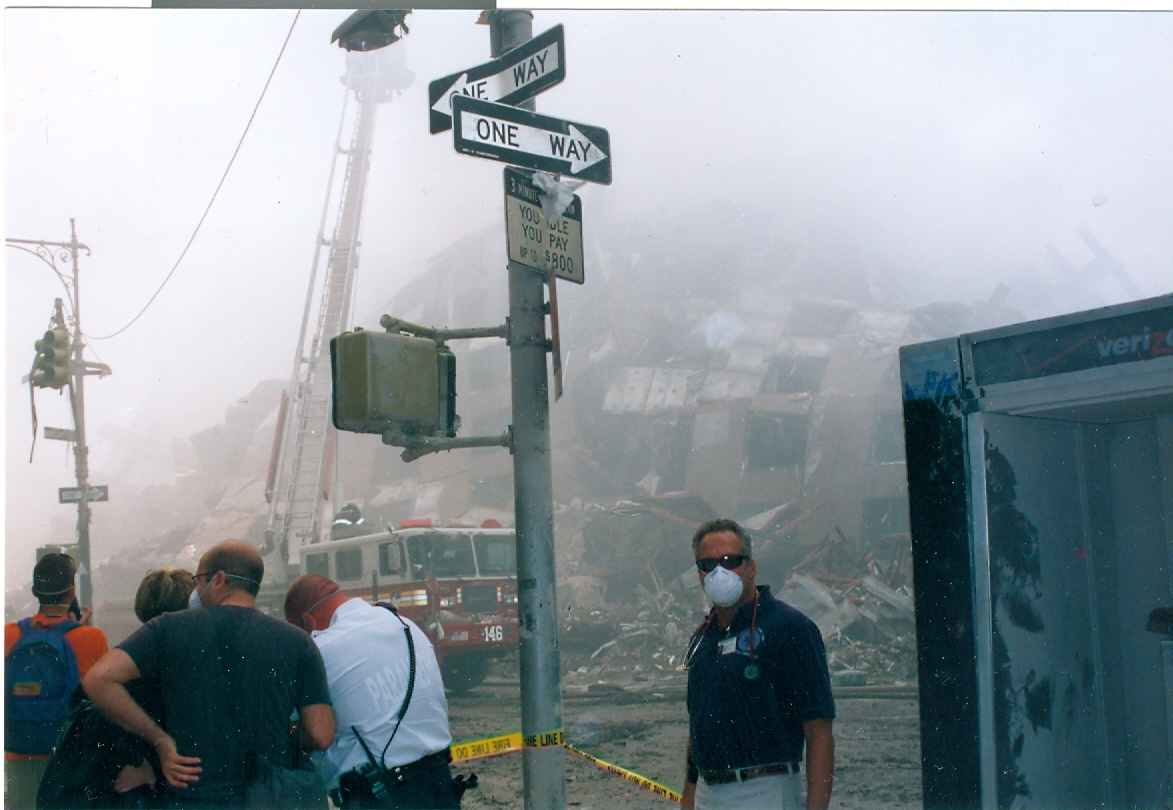
Jaime Hazan, a contributor to TIME, is a former EMT who volunteered at Ground Zero on Sept. 12, 2001
Politicians often call 9/11 responders “heroes.” But when it comes time to guarantee health care by trained occupational physicians and specialists who are familiar with 9/11 diseases, it seems as if there’s silence in the room. This has got to change.
Congress should renew the James Zadroga 9/11 Health and Compensation Act, which provides health care for those affected by covering the cost of doctor visits and medicine for certified conditions relating to the damage caused by the deadly toxins at Ground Zero. The bill will begin to expire soon. Without it, we don’t stand a chance.
My own love for taking care of the sick dates back to my childhood. I became an EMT just before I turned 18. On Sept. 11, 2001, I was sitting in my apartment on the Upper West Side watching TV when the second plane hit the World Trade Center. I was blown away by what I saw. I remember lacing up my boots, thinking, “I’ve got to go down there.” How could I not?
I only served for two days, but that was all it took to destroy my body. A few years later as the health problems intensified, I was sitting at my desk, and I couldn’t breathe. I started having respiratory attacks, as well as other symptoms that I didn’t recognize. I would get up in the middle of the night to chug milk from the fridge because I had really bad heartburn. That 9/11 could be the cause didn’t even cross my mind.
After seeing five different doctors, eventually a cardiologist asked if I was exposed to Ground Zero and referred me to the World Trade Center health program. My heart sank. Dr. Michael Crane at Mount Sinai Hospital evaluated me and confirmed that my illnesses were connected to being exposed to 9/11 dust. The care provided by the James Zadroga bill is very important to me because in all likelihood, many of my illnesses wouldn’t have been discovered by a doctor who wasn’t trained in environmental diseases.
My conditions progressed, and I now take more than 20 medications. I have been diagnosed with lung disease, an auto-immune disorder, chronic migraines, nerve pain and reflux—a common problem for 9/11 first responders. I use four inhalers, and during Asthma flares, I am prescribed Prednisone, an immunosuppressant, which has major side effects—so intense that just a few weeks ago, I required hospitalization. I’ve had sinus and stomach surgery (for GERD), as well as a double hernia repair, caused in part from coughing so hard for so many years combined with the long-term side effects of taking Prednisone. Several months later, I lost partial feeling in my left thigh.
If the James Zadroga Act doesn’t get renewed, thousands 9/11 responders and survivors will be forced to scramble to figure out how are they going to take care of their health and provide for their families. There are more than 72,000 people enrolled in the World Trade Center Health Program nationwide, in all 50 states and in 429 of 435 congressional districts who will lose either their medical care or their medical monitoring. But perhaps the biggest loss would be the elite team of doctors that has assembled over the years for the sole purpose of identifying and treating illness that were caused by exposure to Ground Zero.
When you answer your call to duty for your country and something happens to you, it’s America’s responsibility to make sure that you are cared for, period. Our wellbeing and health were taken from us—especially for those who spent months at Ground Zero, the residents who continued living in lower Manhattan, and children attending school after being told the air was “safe” to breathe.
I’m very grateful to Jon Stewart for supporting this cause, and I look forward to working with him in Washington, D.C., on Wednesday to try to get the bill re-approved—this time, permanently. This is what we need. I’m hopeful Jon’s presence will help us gain even better traction. It has to.
Hazan won a Workers’ Compensation Case (Hazan V. WTC Volunteer) that made it to The New York State Supreme Court 3rd Department. After initially winning his case, the Workers’ Comp Board reviewed and reversed the decision, citing that he was not eligible for benefits because he didn’t volunteer for an “authorized rescue entity or volunteer association.” The New York State Supreme Court found that the Workers’ Comp Board’s decision had no basis under the law.
More Must-Reads from TIME
- Donald Trump Is TIME's 2024 Person of the Year
- Why We Chose Trump as Person of the Year
- Is Intermittent Fasting Good or Bad for You?
- The 100 Must-Read Books of 2024
- The 20 Best Christmas TV Episodes
- Column: If Optimism Feels Ridiculous Now, Try Hope
- The Future of Climate Action Is Trade Policy
- Merle Bombardieri Is Helping People Make the Baby Decision
Contact us at letters@time.com